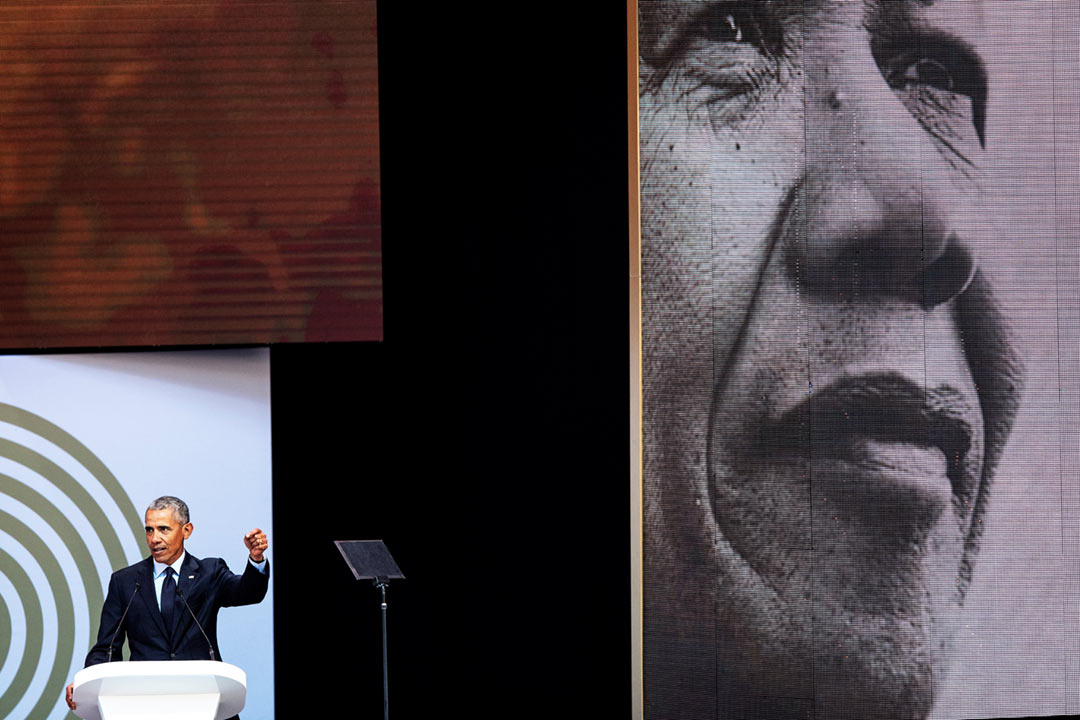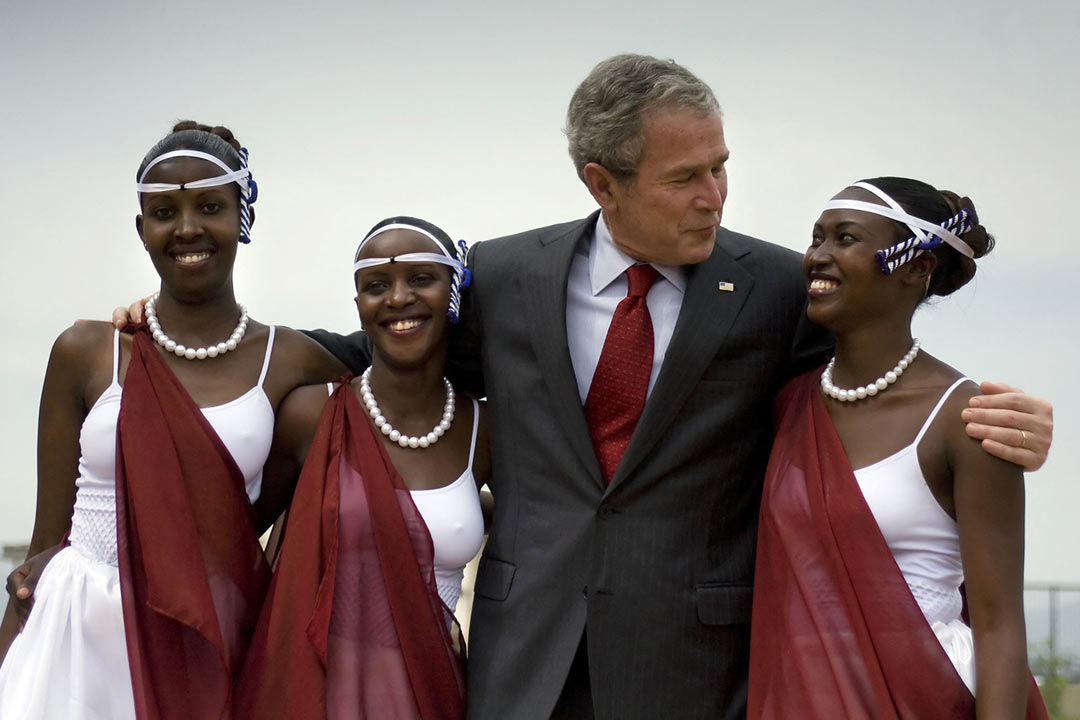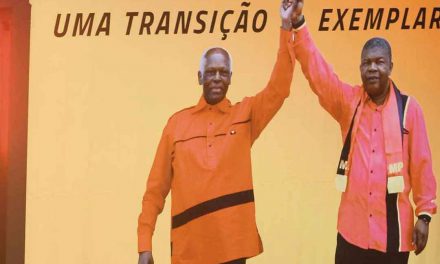Should African states have foreign policy ambitions towards the US?
The United States’ relations with Africa, like most of its relations with other international actors, have always been dictated and directed by the US and its interests in the region, whether bilaterally or multilaterally. This has been the nature of its international relations since the multipolar system of World War I, that the bigger, stronger power “guides” the direction the relationship with a smaller, weaker power will take.
For as long as one can remember, relations between the US and African state actors have been on the US’s terms to ensure that it benefits the most. Even after the advent of the unipolar international order, relations between the US and African states have been unilateral in that the country will mostly achieve whatever national interest it has with regards to its African partner, only after that can the latter enjoy any leftover benefits from the “partnership”.

Former US President Barack Obama speaks during the 2018 Nelson Mandela Annual Lecture at the Wanderers cricket stadium in Johannesburg on July 17, 2018. – Former US president Barack Obama will deliver the Nelson Mandela Annual Lecture, urging young people to fight to defend democracy, human rights and peace, to a crowd of 15,000 people at the club as the centrepiece of celebrations marking 100 years since Nelson Mandela’s birth. Obama has made relatively few public appearances since leaving the White House in 2017, but he has often credited Mandela for being one of the great inspirations in his life. (Photo by MARCO LONGARI / AFP)
However, one cannot blame the US for this because it always seemed that it was the one interested in Africa (not vice versa), the one with a foreign policy towards Africa, and therefore the one that would initiate relations between itself and Africa, even during the highly favoured tenure of former president Barack Obama.
Now that former president Donald Trump has left the White House, there have been optimistic calls for renewed engagements between Africa and the US – relations that would be initiated by Africa, on Africa’s terms, that would benefit Africa the most if not equally with the US. This more than anything else, however, requires that African states have foreign policy ambitions with regards to the US, and the re-strategising of certain national interests. This is because, in all truth, to have relations (be they bilateral or multilateral) with the US (that will be of equal benefit to all partners) is an unofficial guarantee of access to the world economy. It is a means to becoming a notable player in transnational relations in trade, politics, and climate. For some international relations (IR) scholars, this could be considered a means of exerting African agency with regard to a dominant power and in IR generally.
Of course, the questions now are centred on why at this time develop a foreign policy towards the US? Should African states have foreign policy ambitions towards the US? Would the US be interested in an Afrocentric foreign policy framework, and why?
All of these are very important and straightforward questions that need answers, but the answers are unfortunately not so straightforward.
The US foreign policy framework with regards to Africa in the 21st century can be summarised and categorised into three former administrations, each with their perception of why and how the US should engage with Africa, either multilaterally or bilaterally.

US President George W. Bush (C) poses with members of the entertainment commitee after inaugurating the new US Embassy in Kigali, February 19, 2008. Bush paid homage today to the estimated 800,000 killed in Rwanda’s 1994 genocide and urged global action to end the bloodshed in Sudan’s Darfur region “once and for all.” According to the UN, about 200,000 people have died in Darfur from the combined effects of war, famine and disease since 2003, when a civil conflict erupted pitting government-backed Arab militias against non-Arab ethnic groups. AFP PHOTO/Jim WATSON (Photo by JIM WATSON / AFP)
The Bush administration’s foreign policy towards Africa focused on military aid, conflict in Darfur in Sudan, sanctions on an anti-democratic Zimbabwe, humanitarian aid through the PEPFAR (President’s Emergency Plan for AIDS Relief) programme for fighting the epidemic, and food aid to the war- and famine-ravaged areas of Africa.
Similarly, the Obama administration was not so different in its foreign policy towards Africa: prioritising foreign aid for fighting terrorism (against the backdrop of the 9/11 terrorist attack in New York) and piracy in the Horn of Africa, supporting regime change in Libya and Egypt, food and military aid in conflict-ridden regions of Democratic Republic of Congo, and supporting the fight against the illegal trade in conflict minerals.
The Trump administration was different in its foreign policy, displaying an observable ignorance of Africa and redirecting its foreign policy ambitions towards other regions of the world. As evidenced by Trump’s support for despotic rule in Abdel Fattah Al-Sisi’s Egypt, and general disregard for Africa, it is clear he had little interest in the continent and its issues, a characteristic that set him apart from his predecessors. His most noted engagements with Africa were his controversial comments on Nigerian migrants in the US, and supposed “white genocide” in South Africa, which caused continental condemnation from leaders and officials. Trump’s non-democratic tactics and bilateral tendencies while at the helm of the White House were widely criticised by most democracies in the global North and South. Ultimately, even when considering the foreign policies of his predecessors, Africa was acted upon and seldom a part of the policies, but often the subject.
Nevertheless, some of the US’s policy frameworks towards Africa were in good faith and made in the hope of assisting a suffering continent. President Joe Biden’s ascendance to the White House is accompanied by much optimism and high anticipation of a return to multilateralism and diplomacy, an approach that appears to be the opposite of Trump’s “America First” policy.
With this anticipated return to engagement with Africa comes the assumption, or hope at least, that Africa-US relations will not suffer like they did under the Trump administration, and that Africa will, for a change, be part of the engagements and arrangements, and not merely the subject of the US’s interests.
Owing to the “new Scramble for Africa”, many outside powers (the US being one of them) have expressed visible interest in engaging with Africa once more. The sheer number of trade agreements various countries in the continent have entered into with external powers, as well as the very visible presence of dominant powers operating in Africa, as shown in the rapid growth in the number of embassies that have opened, are evidence of this. In this increasingly interpolar world order, Africa is projected (according to UN statistics) to become integral to the world’s trade and economy in the coming decades, and everyone seems to want a slice of the pie.
It seems Africa itself, with the desire of ridding itself of the legacy of aid, has become very active on the international scene. Since the advent of the 21st century, Africa has joined various international organisations, proposing ambitious policy frameworks of what it should aspire to, and leading the charge for institutional reform on multilateral and institutional forums like the World Trade Organization, the United Nations Security Council, and the International Criminal Court, among others. Moreover, Africa has witnessed a rise in good governance practices and an increasing speed of democratisation, which has attracted an interest in forging partnerships from external players.
With this, it is imperative to ask, “Is there a need, now, for an African foreign policy framework towards a global economic hub and a dominant power?” and the simple answer is yes. Prior to the Trump administration, the US’s foreign policy interests in the continent dictated Africa-US relations. However, during the Trump administration, those relations were frustrated because US interests appeared to be elsewhere and it only looked to Africa to counter China’s (and by extension Asia’s) presence in the continent, bilaterally or multilaterally, such as with the BRICS Development Bank.
In the past, Africa has used superpower interest and rivalry to its benefit by pitting superpowers (US and the former USSR) against each other while extracting aid. Now, a similar opportunity presents itself, mostly because with the US’s renewed interest in the continent, President Biden seems in favour of a “mutually beneficial” partnership with Africa, as expressed in his virtual meeting at the African Union headquarters in January 2021. This appears to be unlike the last time there was superpower rivalry over Africa and only aid was extracted by African countries; perhaps now Africa can position itself in such a manner that it proposes long-term policies that would benefit Africans greatly and which would see African countries taking part in the continent’s development agenda and trajectory.
Africa has been on the cutting edge of significant infrastructural and technological transformation and with this is quickly catching up to the globalised world. Its economies, while not yet big enough, have increased significantly over the past two decades, owing to the number of trade agreements it has entered into with the global North and South, either through foreign direct investment or multinational corporations having subsidiaries in the continent.
The African Continental Free Trade Area (ACFTA), which came into effect in 2018, has been one of the notable strides Africa has taken towards a continental open-market economy. It is giving small economies access to more trade, which could be used to negotiate (regionally, if not continentally) beneficial trade agreements with external players. This, together with the growing number of embassies in Africa, may give the continent some leverage against the US in terms of alternatives for trade, policy, technology, education, and cultural exchange agreements it can enter into, especially considering the US fear of China’s growing influence in the region and in global affairs. This would be a clear indication of African agency, a phenomenon that has characterised much of Africa’s behaviour and relations on the international scene lately.
The need for an Afrocentric foreign policy framework towards the US also arises out of the observation that there are some domestic priorities that the Biden presidency has to attend to before giving priority to US-Africa relations and partnerships. It is true that Biden inherited a deeply broken and partly collapsed democracy in the wake of Trump’s rule from 2016 to 2020, and hence Biden has to focus inwards, restoring the integrity of America’s democratic system and institutions before focusing on global issues. Thus, Africa must take this opportunity and initiative to develop and draft a policy framework detailing its interest in the US. African agency has been greater when the continent acted as a cohesive unit in its relationships with the rest of the world, and this time would be no different.
While bilateral relations may offer the best benefits, regional agreements, through the AU, can guarantee the most success. This has been, for the most part, Africa’s preference in engaging with the rest of the world. With this new policy framework towards the USA, states like Nigeria, South Africa, Egypt, Ethiopia, Ghana, and Kenya, may be helpful (with respect to the experience as international players, foreign policy resources, as well as being of geostrategic importance to their regions) in leading the charge on this policy framework.
As with many other regional agreements, this too would require significant aligning of national interests, compromise, and notable commitment to the policy framework. More than anything, this policy framework should go beyond proposals for economic trade agreements, encompassing environmental treaties as well as cultural, educational, technological and regional policy exchanges. This proposed policy framework may well be the next chapter in the realisation of Agenda 2063, Africa’s blueprint for transforming the continent into a global powerhouse.
Obviously, whether this policy will happen while Biden is still in office is a matter for another time, but it can and should be hoped that this new “mutually beneficial” engagement between the US and Africa can outlive the Biden administration well into the new administrations that will succeed it, and hopefully see a rare foreign policy continuation towards Africa.
African agency is possible with an Afrocentric policy — or rather, an Afrocentric policy towards the US would epitomise African agency.
The call for an African policy framework towards the US is certainly ambitious, but not impossible. It would no doubt contribute to the growing need for Africa to become an influential global player, to be an active as opposed to a passive international actor, and fulfil the vision of many former African leaders, theorised by seasoned African scholars.
While the accounts noted above agree strongly with scholarly views and perceptions on the way forward for Africa-US relations, they are not in any way considered the only preferred direction that these relations can and should take. They just highlight some of the many proposed routes and what this means for African agency in international relations.
As noted above, whether this policy will happen during Biden’s time is another discussion, and there are no certainties that the US will accept the policy framework. However, nothing in history, at least in Africa’s history, has been accomplished without application and optimism, and it is hoped that such a foreign policy framework will be developed and will be beneficial for Africa.
Siviwe Rikhotso is an ACSUS Wits geopolitical researcher and MA candidate in the Wits International Relations department.












